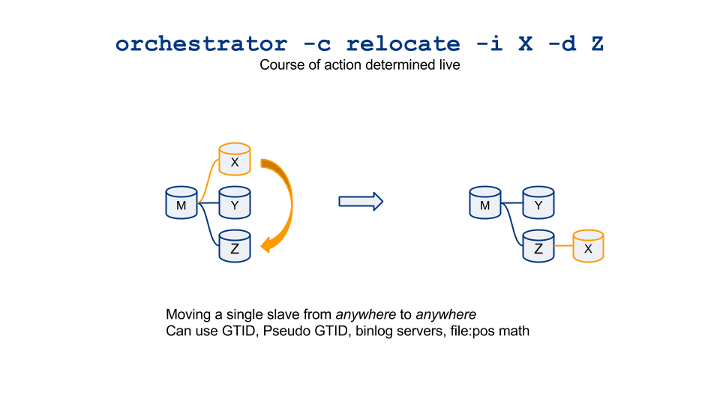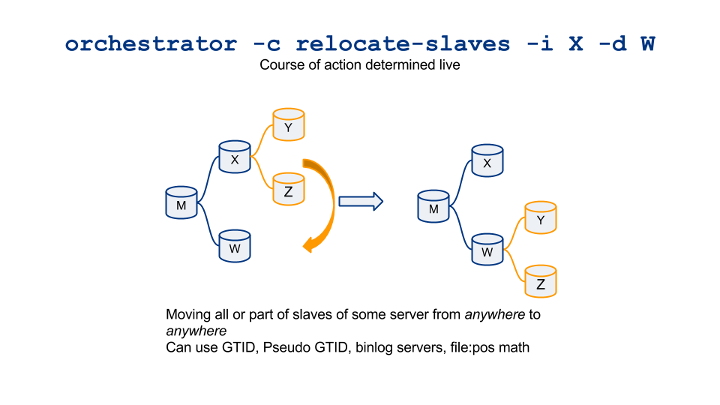Orchestrator is really growing. And the amount of users (DBAs, sys admins) using it is growing. Which gives me a lot of immediate feedback in the form of “Look, there’s just too many options to move slaves around! Which ones should we use?”
TL;DR look at the two visualized commands below
They are enough
The “smart” commands to end all commands
So all relocation commands are important, and give you fine-grained, pin-pointed control of the method of topology refactoring. However, most of the time you just want to move those servers around. Which is why there’s a new “smart” mode which support these two commands, which you should be happy using:
- relocate: move a single slave to another position
- relocate-slaves: move all/some slaves of some server to another position.
What makes these commands Smart? You can move slaves around from anywhere to anywhere. And orchestrator figures out the bast execution path. If possible, it uses GTID. Not possible? Is Pseudo-GTID available? Great, using Pseudo-GTID. Oh, are there binlog servers involved? Really simple, use them. None of the above? Orchestrator will use “standard” binlog file:pos math (with limitations). Orchestrator will even figure out if multiple steps are necessary and will combine any of the above.
So you don’t have to remember all the possible ways and options. The visual cheatsheet now boils down to these two:
Let’s take a slightly deeper look Continue reading » “Orchestrator visual cheatsheet, TL;DR the “smart” way”


